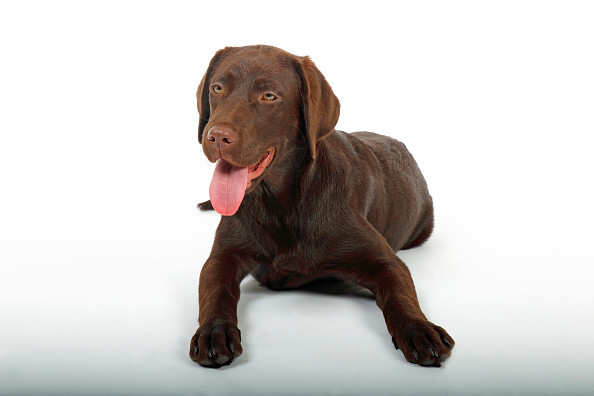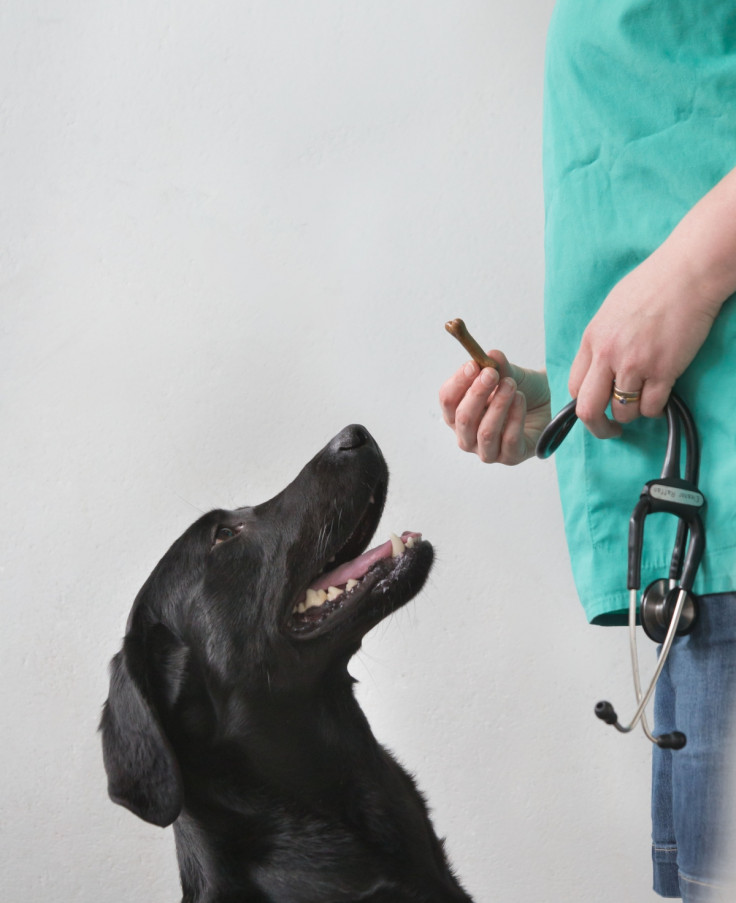Why are labradors so fat? Breed is genetically programmed to love food

The reason labrador retrievers always seem to have a special interest in food could be found in their genes, scientists say. These dogs are keen to eat often and are overall more obese than other breeds, regardless of their owners.
The study, published in Cell Metabolism, compares genetic information of overweight and normal labrador retrievers, to identify if a particular gene was to blame for canine obesity. "Whenever there's something more common in one breed than another, we think genetics are involved," explains lead author Eleanor Raffan, from the University of Cambridge.
Food-oriented behaviours
With her team, Raffan looked for different genetic variants in a cohort of obese and lean dogs that are known to impact weight gain and obesity in humans.
Among the obese retrievers, they identified a recurring variation in a gene called PMOC, with a section of DNA at the end of the gene missing.
This deletion is thought to prevent the dog from producing two neuropeptides that are responsible for switching off hunger after a meal.

The scientists verified this link between PMOC and canine obesity in a larger group of 310 retrievers. Again, they found that a deletion was associated to weight, obesity and appetite in labradors.
The researchers estimate that about 23% of labrador retrievers have this mutation and that it induces a range of food-oriented characteristics and behaviours.
Though not all obese dogs carried the altered version of the gene, those who did were on average 2 kg heavier than those who did not.
They were also described as more "food-motivated" in a series of questionnaires their owners filled in. This involved behaviours, such as begging for food more often, paying more attention at mealtimes and scavenging for scraps on a regular basis.
"We've found something in about a quarter of pet labradors that fits with a hard-wired biological reason for the food-obsessed behaviour reported by owners," says Raffan. "There are plenty of food-motivated dogs in the cohort who don't have the mutation, but there's still quite a striking effect."
Slim and healthy
Although this genetic factor is not alone in explaining canine obesity, the researchers believe owners should be made aware that it exists, so that they can be more vigilant. Indeed, they have a crucial role to play in monitoring what their dogs eat and in helping them stay slim.
"The behaviour of dogs carrying this mutation is different," Raffan concludes. "You can keep a dog with this mutation slim, but you have to be a lot more on-the-ball − you have to be more rigorous about portion control, and you have to be more resistant to your dog giving you the big brown eyes. If you keep a really food-motivated labrador slim, you should give yourself a pat on the back, because it's much harder for you than it is for someone with a less food-motivated dog."
© Copyright IBTimes 2025. All rights reserved.






















